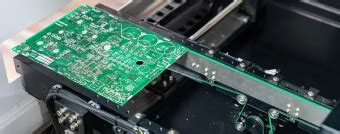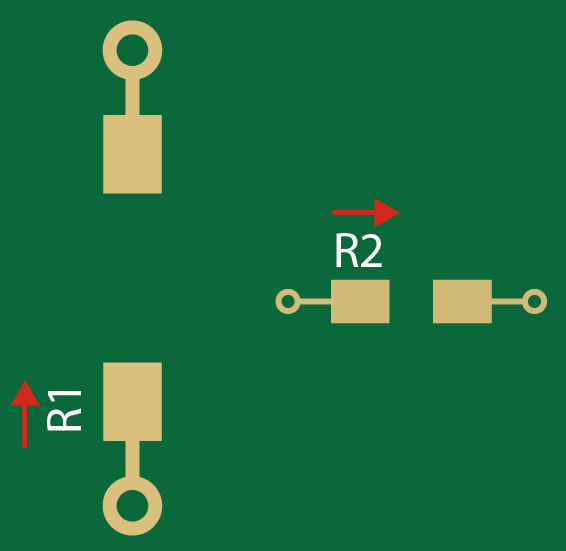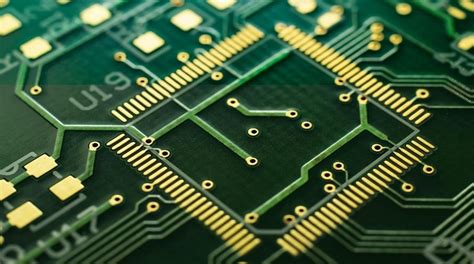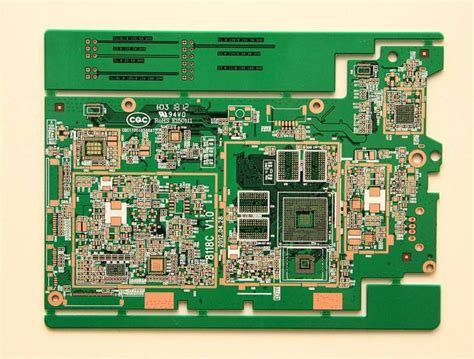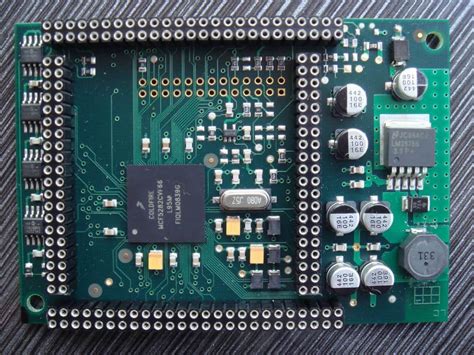Precision PCB Board Fabrication on a Budget
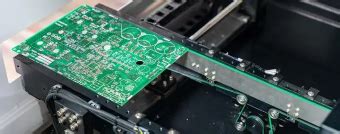
Key Takeaways
When navigating PCB manufacturing options, understanding cost-efficiency without compromising quality is critical. Modern PCB manufacturing companies leverage advanced techniques to deliver aerospace-grade precision at accessible prices, with some services offering prototypes starting as low as $2 for five boards. By optimizing material selection and production workflows, you can reduce PCB manufacturing cost while maintaining industrial-standard reliability—even for complex designs.
Tip: Always request a detailed breakdown of your quote to identify potential savings in layer count, board size, or surface finishes.
For time-sensitive projects, 24-hour turnaround solutions demonstrate how the PCB manufacturing business has evolved to meet urgent prototyping needs. Whether you require ten units or ten thousand, global suppliers now provide synchronized logistics networks to ensure consistent quality across borders. This scalability makes bulk orders particularly cost-effective, with per-unit prices decreasing significantly at higher volumes.
Key consideration: Balancing speed and affordability requires clear communication with your manufacturer about design tolerances and testing protocols. Transitioning from prototypes to full-scale production becomes seamless when working with partners who specialize in both low-volume and high-volume PCB manufacturing workflows.

Low-Cost PCB Prototyping Services
When developing electronic projects, balancing PCB manufacturing cost with quality is critical. Many PCB manufacturing companies now offer prototyping services tailored for tight budgets, enabling you to test designs without overspending. By leveraging advanced fabrication techniques like automated panelization and optimized material usage, these providers reduce waste and pass savings to you. For instance, prototyping batches starting at $2/5pcs allow iterative testing while maintaining aerospace-grade precision—a necessity for ensuring reliability in demanding applications.
Transitioning from concept to physical board is faster than ever, with some services delivering prototypes in under 24 hours. This speed is ideal for startups or engineers racing against deadlines. However, low cost doesn’t mean compromising standards: look for suppliers adhering to IPC-6012 specifications, which guarantee consistent layer alignment and solder mask integrity. Partnering with a PCB manufacturing business that scales seamlessly from prototypes to bulk orders ensures continuity, especially if your project evolves into mass production.
To further optimize expenses, consider design-for-manufacturing (https://www.andwinpcba.com) from trusted partners who align with both your technical and budgetary needs. Whether you’re validating a new circuit or preparing for high-volume runs, affordable prototyping bridges the gap between innovation and market readiness.
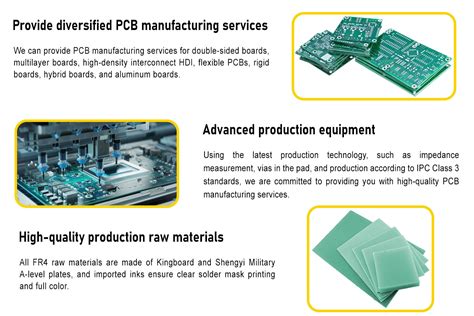
Fast-Turnaround PCB Fabrication Solutions
When your project demands speed without compromising quality, partnering with reliable pcb manufacturing companies ensures you meet tight deadlines. Modern pcb manufacturing workflows now integrate automated processes and advanced machinery, slashing production cycles to as little as 24 hours for prototypes. This agility is critical for iterative design phases or last-minute revisions, allowing you to test and refine boards faster than traditional methods.
Balancing pcb manufacturing cost with rapid timelines requires strategic planning. Many providers offer tiered pricing models, where bulk orders or standardized designs reduce expenses. However, even for low-volume runs, optimizing panel utilization and material selection can trim costs without sacrificing precision. For instance, opting for FR-4 substrates over specialty materials often aligns with budget constraints while maintaining industrial-grade performance.
In the pcb manufacturing business, time-sensitive projects also benefit from digital quoting systems and real-time order tracking, minimizing administrative delays. Whether you’re producing prototypes or scaling to mass production, transparent communication with your manufacturer ensures alignment on specifications and timelines. By prioritizing vendors with proven fast-turnaround capabilities, you maintain momentum in product development while keeping budgets intact.
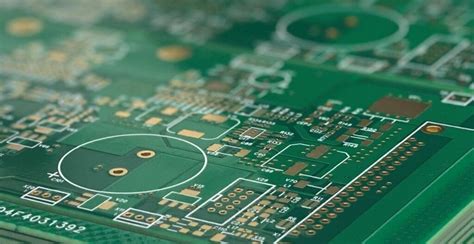
Aerospace-Grade PCB Boards on Budget
Achieving aerospace-grade precision in PCB manufacturing doesn’t require astronomical budgets. Modern PCB manufacturing companies leverage advanced processes like laser-direct imaging and automated optical inspection to deliver tight-tolerance boards at competitive rates. By optimizing PCB manufacturing cost through material selection and panel utilization, you can secure boards with ±0.002" trace spacing or 20-layer builds without overspending.
For example, specialized PCB manufacturing business providers now offer:
| Feature | Standard PCB | Aerospace-Grade PCB |
|---|---|---|
| Material Tolerance | ±5% | ±1% |
| Layer Count | 1-12 | Up to 24 |
| Thermal Reliability | 130°C Tg FR4 | 180°C Tg Polyimide |
| Testing Compliance | Basic Electrical | MIL-PRF-31032 |
These enhancements ensure signal integrity and thermal stability for avionics or satellite systems, while bulk ordering and shared tooling further reduce per-unit expenses. When sourcing, prioritize vendors with AS9100 certification—this guarantees adherence to aerospace protocols without inflating PCB manufacturing cost. By aligning design specifications with production scalability early, you eliminate costly revisions and maintain budget discipline across prototyping and full-scale runs.
Global PCB Manufacturing for Prototypes
When developing prototypes, partnering with PCB manufacturing companies that operate globally ensures access to specialized expertise while maintaining competitive PCB manufacturing cost. Modern providers leverage distributed production facilities to balance speed and affordability, allowing you to test designs without geographical constraints. For instance, low-volume orders can be routed to regional hubs for faster turnaround, while high-precision requirements are met through centralized factories with advanced equipment. This flexibility is critical for startups and enterprises alike, as it reduces logistical bottlenecks and aligns with tight R&D timelines.
Many PCB manufacturing services now offer unified quality standards across locations, ensuring aerospace-grade tolerances and material compliance whether your prototypes are built in Asia, Europe, or North America. By optimizing supply chains, these providers minimize hidden fees—a common pain point in the PCB manufacturing business—while maintaining certifications like ISO 9001 and IPC Class 3. You also gain scalability: prototype batches can seamlessly transition to bulk production through the same network, eliminating requalification delays. Prioritize vendors offering transparent cost breakdowns and real-time tracking to navigate global options efficiently.
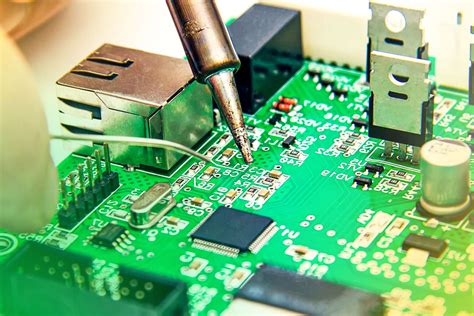
Budget-Friendly Bulk PCB Production
When scaling your electronics project, managing PCB manufacturing cost becomes critical without compromising quality. Leading PCB manufacturing companies now offer tiered pricing models that significantly reduce per-unit expenses for orders exceeding 500 boards. By leveraging economies of scale, you can achieve up to 60% cost savings compared to small-batch prototyping. Advanced panelization techniques allow multiple boards to be produced on a single substrate, minimizing material waste and accelerating turnaround times.
To optimize budgets further, prioritize suppliers that provide design-for-manufacturing (DFM) analysis at no extra charge. This ensures your designs align with PCB manufacturing capabilities, avoiding costly revisions. Many providers also offer bulk discounts on materials like FR-4 or high-frequency laminates, which directly impacts PCB manufacturing business margins. For projects requiring strict compliance (e.g., IPC-A-600 standards), verify that your partner maintains certified processes—this prevents defects that inflate long-term costs.
Global PCB manufacturing hubs now combine automated assembly lines with competitive labor rates, making high-volume orders feasible even for startups. Always request quotes that bundle testing, packaging, and logistics to avoid hidden fees. By aligning order quantities with production cycles, you maintain cash flow while securing industrial-grade boards at prototype prices.
High-Precision PCBs Under 24 Hours
When time-sensitive projects demand PCB manufacturing without compromising accuracy, modern PCB manufacturing companies have optimized workflows to deliver aerospace-grade precision within 24 hours. Advanced automated drilling and laser-direct imaging (LDI) systems enable micron-level trace alignment, ensuring compliance with tight tolerances required for high-frequency or miniaturized designs. While PCB manufacturing cost often rises with faster turnarounds, competitive pricing models now integrate bulk-order discounts and material optimization to keep budgets intact.
For prototyping or small batches, you can leverage just-in-time production strategies that prioritize critical layers or reduce panelization waste. Many providers also offer real-time DFM checks to catch design flaws early, preventing costly revisions. This efficiency is particularly valuable for startups navigating the PCB manufacturing business, where rapid iterations are essential to meet investor timelines or product launch windows.
By partnering with facilities equipped with 24/7 production lines and ISO-certified quality controls, you maintain industrial reliability even under tight deadlines. Whether you’re testing a new IoT sensor or scaling an automotive module, balancing speed with precision no longer requires sacrificing affordability—a critical advantage in today’s fast-paced hardware landscape.
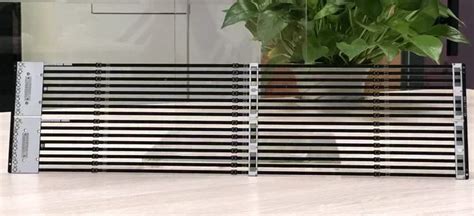
Affordable Custom PCB Design Support
When managing PCB manufacturing costs, access to budget-friendly design tools becomes crucial. Leading PCB manufacturing companies now integrate free EDA software with pre-verified component libraries, enabling you to create schematics and layouts without licensing fees. For complex projects, many providers offer tiered support—starting with automated design rule checks (DRC) to prevent fabrication errors, escalating to engineer-led reviews for high-density or mixed-signal boards.
This approach streamlines your PCB manufacturing business operations by reducing iterative revisions. For instance, cloud-based collaboration portals let teams annotate designs in real time, ensuring alignment before production. Some services even provide cost-optimized material recommendations based on your application—whether it’s FR-4 for standard prototypes or high-frequency laminates for RF circuits.
By pairing these tools with transparent PCB manufacturing pricing models, you gain visibility into how layer counts, surface finishes, and tolerances impact expenses. This empowers smarter trade-offs—like opting for immersion silver over ENIG for non-critical projects—to meet aerospace-grade standards without overspending. Such flexibility ensures custom designs stay viable for both small-batch prototyping and scaled production.
Industrial-Standard PCB Cost Optimization
Achieving industrial-standard PCB manufacturing while controlling expenses requires balancing technical precision with strategic sourcing. To optimize pcb manufacturing cost, start by evaluating material specifications—opting for FR-4 substrates instead of high-frequency laminates for non-critical applications can reduce expenses by up to 40%. Advanced design software further streamlines layouts, minimizing material waste and avoiding costly revisions. Partnering with pcb manufacturing companies that offer tiered pricing for bulk orders or shared panelization can lower per-unit costs without compromising ISO-certified quality.
For businesses managing tight budgets, modular designs allow reuse of validated circuit blocks, cutting development time and pcb manufacturing business overhead. Automated assembly processes, such as surface-mount technology (SMT), enhance consistency and reduce labor-dependent errors, ensuring compliance with IPC-A-600 standards. Additionally, consolidating orders with suppliers that provide real-time cost tracking ensures transparency and avoids hidden fees. By leveraging economies of scale and prioritizing value-driven partnerships, you can maintain aerospace-grade precision while keeping pcb manufacturing expenses aligned with project goals.
Conclusion
As you navigate the complexities of PCB manufacturing, balancing cost and quality remains critical. Partnering with reliable PCB manufacturing companies ensures access to aerospace-grade precision without exceeding your budget. By prioritizing lean production workflows and advanced automation, these providers minimize PCB manufacturing cost while maintaining industrial standards—ideal for both prototypes and high-volume orders.
For businesses scaling their PCB manufacturing business, global logistics networks enable seamless delivery, whether you’re testing a new design or ramping up production. Fast-turnaround services (think 24-hour builds) further reduce downtime, letting you iterate faster. Cost optimization doesn’t mean compromising on reliability; it’s about leveraging economies of scale and smart material sourcing.
Ultimately, the right partner aligns with your technical requirements and financial constraints, delivering high-precision boards that meet aerospace or industrial demands. Whether you’re a startup or an established enterprise, strategic planning ensures your PCB manufacturing process stays efficient, scalable, and budget-friendly.
FAQs
How does PCB manufacturing balance cost and quality?
Reputable PCB manufacturing companies use automated processes and bulk material sourcing to reduce production waste, allowing you to get aerospace-grade boards without exceeding your PCB manufacturing cost. Advanced panelization techniques further optimize material usage.
What factors influence turnaround time in PCB fabrication?
Most PCB manufacturing business operations prioritize rapid prototyping through parallel processing—simultaneously handling design validation, material prep, and layer alignment. For 24-hour builds, confirm whether your supplier offers dedicated quick-turn lines versus shared production queues.
Can bulk orders lower PCB manufacturing expenses?
Yes. Scaling to high-volume orders reduces per-unit costs by amortizing setup fees and leveraging economies of scale. Many PCB manufacturing companies offer tiered pricing, with discounts increasing at thresholds like 100 or 500 units.
How do you verify compliance with industrial standards?
Request certifications like ISO 9001 or AS9100D during vendor selection. Reliable suppliers provide test reports (e.g., impedance testing, AOI scans) to confirm adherence to aerospace or medical-grade specifications.
Ready to Start Your Project?
For tailored solutions that align with your PCB manufacturing cost and timeline goals, please click here to connect with experts specializing in precision PCB manufacturing business workflows.

